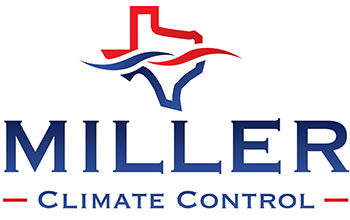
If you’re questioning whether your Georgetown residence has poor indoor air quality (IAQ), it possibly does.
We are indoors a lot. As a matter of fact, we’re inside up to 90% of the time, according to the U.S. Environmental Protection Agency. And the air inside residences could be 2–5 times more polluted than outdoors, which may create long-term health issues.
Most Common Origins of Bad IAQ
We’ve put together a list of the most frequent sources of inferior IAQ, the issues they create and how you can fix these indoor air pollutants. If you’re concerned about the air inside your residence, we advise consulting with a expert like Miller Climate Control LLC about which solutions are ideal for your home.
Volatile Organic Compounds
Volatile organic compounds, or VOCs, are vapors released by regular household items.
They’re found in paint and stains in addition to:
- Furniture
- Carpet
- Building materials
- Cleaning products
- Cosmetics
- Air fresheners
- Candles
When these chemicals accumulate inside, they may irritate your eyes, nose and throat. They might also cause headaches and nausea. Regardless of whether your residence is in a rural or industrial space, an EPA study found indoor levels of these fumes can be 2–5 times worse than the air outdoors.
Always follow the manufacturer’s directions when using paint or cleaning supplies. Cracking a window can help odors disappear faster.
Air purification systems can also improve your air. This unit partners with your heating and cooling system to improve indoor air. When looking for one, ensure it’s specifically designed to eradicate VOCs.
Dust and Pet Dander
Dust and pet dander can trigger health problems like asthma and allergies, especially when it continually gets moved by your house’s comfort system. While you can vacuum more regularly and install an improved air filter, an air filtration system could be a better match.
This solution hooks to your heating and cooling equipment to give strong filtration. Some types provide hospital-level filtration for removing particles and bioaerosols.
Lingering Odors
New homes are closely sealed to enhance energy efficiency. While this is good for your heating and cooling expenses, it’s not ideal for your IAQ.
Stuffy odors can stay around for a greater amount of time as your house is pulling in reduced fresh air. Because keeping your windows open all year-round isn’t a possibility, here are two methods you can make your indoor air smell fresher.
An air purification system is installed in your ducts to wipe out odors before they recirculate. Search for one with a carbon filter and the ability to eliminate harmful VOCs. These systems can also help keep your loved ones healthy by eliminating most bacteria and common allergy triggers like pollen and mold spores.
A ventilation system pulls out stale indoor air and exchanges it with fresh outdoor air. There are two types of systems (heat recovery and energy recovery), so check with our professionals for more information on which type is ideal for your house.
Uneven Humidity
It’s critical your home’s humidity remains even. Air that’s too moist can create mold, while dry air can create respiratory troubles.
Our professionals suggest 40–50% for ideal comfort. To keep yours even, think about getting a whole-home humidifier or whole-home dehumidifier with your HVAC unit.
Instead of having to drag a humidifier from room to room, this solution delivers consistent humidity around your house.
Carbon Monoxide
Carbon monoxide is colorless gas you can’t smell. It’s a byproduct of insufficient combustion in fuel-burning equipment, like gas heating systems, water heaters or fireplaces.
It produces a serious health risk. In low levels, it can create flu-like ailments like headaches and nausea. It could be lethal in heavy concentrations.
We advise annual furnace maintenance to ensure your unit is running properly. This work allows our specialists to see issues before they start, including malfunctions that can create carbon monoxide leaks.
The best method to keep your residence free of carbon monoxide is to install detectors. These alarms must be on each floor by bedrooms and living areas.
Better Your House’s Air Quality with the Miller Climate Control LLC Professionals
Aware that your residence has bad air quality but not sure how to improve it? Or unsure which option is ideal for you? Give our approachable HVAC specialists a call at 512-379-6873 or contact us online today. With free estimates and expert service, we’ll help you choose the best equipment for your home and budget.

